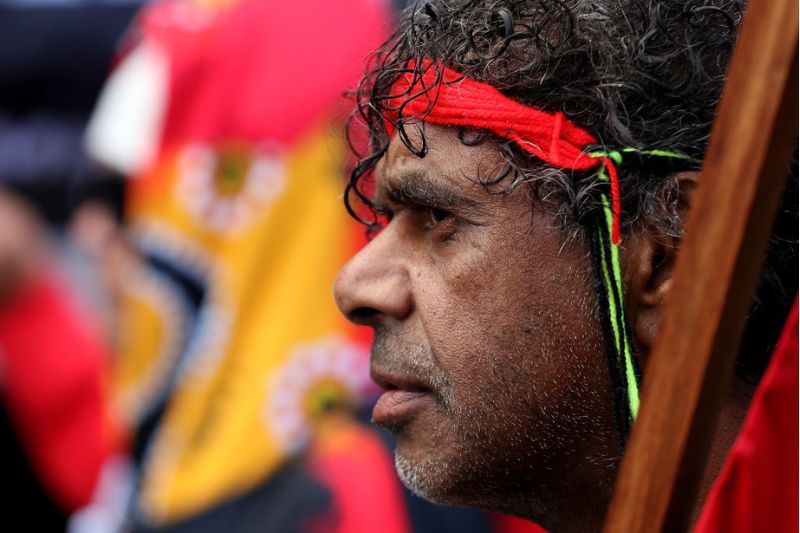Later this year, as people are aware, we will be heading out to our local polling stations to cast our votes on a referendum question for the first time since 1999. As part of their Federal Election policy platforms, the Labor Party promised that they would implement the Uluru Statement from the Heart in full, and therefore will taking the first step to hold a referendum on whether an Indigenous Voice to Parliament should be enshrined within the constitution.

In March this year, Prime Minister Albanese revealed what that question will be and what the constitutional amendment will consist of. Given the fact that so few referenda have been successful, the question is deliberately simple in order to achieve the greatest chance of success at the ballot box:
A proposed law: To alter the Constitution to recognise the First Peoples of Australia by establishing an Aboriginal and Torres Strait Islander Voice.
Do you approve this proposed alteration?
The proposed constitutional amendment itself is as follows:
Chapter IX Recognition of Aboriginal and Torres Strait Islander Peoples
129 Aboriginal and Torres Strait Islander Voice
In recognition of Aboriginal and Torres Strait Islander peoples as the First Peoples of Australia:
-
-
There shall be a body, to be called the Aboriginal and Torres Strait Islander Voice;
-
The Aboriginal and Torres Strait Islander Voice may make representations to the Parliament and the Executive Government of the Commonwealth on matters relating to Aboriginal and Torres Strait Islander peoples;
-
The Parliament shall, subject to this Constitution, have power to make laws with respect to matters relating to the Aboriginal and Torres Strait Islander Voice, including its composition, functions, powers and procedures.

As an Arrernte woman, in what may be surprising to a lot of readers, I admit to being undecided on which way my vote will go. I understand why some will be surprised. For a very long time now, via a combination of media spin, Uluru Statement activism and political posturing, the public has been informed that an enshrined Voice within the Australian constitution is what Aboriginal and Torres Strait Islander people really want. You have been told that this statement was the consensus of a congregation of hundreds who met at Uluru after a series of regional dialogues. That it’s a national shame that we, as the First Peoples of this land, have never been recognised in the constitution and by this happening, Australia will be undoing a great wrong.
Yet as somebody who has been engaged in Indigenous movements for a long time, who has been additionally engaged in other social justice movements, and who has more than a little political knowledge, I am unconvinced. This is not to say that I am committed to a 'no' vote either. Just that after so many years of experience, of living through every single Indigenous body that has existed and seeing them all be ripped apart by one government after another, I am not sure I buy that having one written into the constitution is going to make a lot of difference.
When you go to the Yes23 website, their answer to this question is simple. Once the Voice exists in the constitution, the governments are committed to it and the only way they can remove it is via holding another referendum. This is, of course, correct. As shown though by what the inclusion in the constitution itself will consist of above, the Voice will be controlled by legislation. Whilst the Voice co-design report has proposed a model for the composition of the Voice – simply put, representatives from each state, territory and the Torres Strait, with additional seats for remote communities and for Torres Strait Islander people living on the mainland, and including gender and age balance – as the Yes campaign website makes clear, this discussion is for 'phase two', once the referendum itself has been successful. It will be up to governments to decide whether they wish to adopt this representative model or go for something else entirely.
Given that there will be no power of veto the Voice to Parliament can exercise over legislation relevant to Aboriginal and Torres Strait Islander people, it will also be up to governments just how much they listen to, and take advice from, the representations made by the Voice. For that matter though, exactly how will it be decided that certain legislative proposals require consultation and others won’t? Will the Voice be consulted on environmental legislation or disability legislation (given the higher rates of disability in our communities) if these proposals do not directly reference Aboriginal and Torres Strait Islander lands or peoples?
'Surely one of the biggest truths we need to be tell in the first place is how the constitution came to be and why it was deliberately written to exclude us. And given this, is the answer really our inclusion, or is it coming to the table as equals, sitting down and nutting out, as sovereign peoples, treaties that could ensure a better, more inclusive, way forward?'
And what of the constitution itself? Is writing us into a document that was drafted to reinforce the White Australia Policy and carries remnants, to this day, of this shameful past (see section 25 and section 44) really the great act of undoing the racism that has impacted the lives of Aboriginal and Torres Strait Islander people for centuries? I get why champions of the Uluru Statement feel embedding the Voice is a crucial first step to confronting racism and then moving on to the processes of treaty-making and truth-telling. The constitution is, after all, the primary document of governance in this country. It’s what Australia is founded upon. The problem is that I am not sure that I agree with them. I mean, surely one of the biggest truths we need to be tell in the first place is how the constitution came to be and why it was deliberately written to exclude us. And given this, is the answer really our inclusion, or is it coming to the table as equals, sitting down and nutting out, as sovereign peoples, treaties that could ensure a better, more inclusive, way forward?
All of this is food for thought, and I would like to point out that regardless of just how much I personally have been mulling over, what I remain most interested in of all is gaining more detail from the government regarding exactly how they will plan to move forward if the referendum is passed. I want to know this will change the lives of the many Aboriginal and Torres Strait Islander people out there doing it tough. I want reassurance that the Labor Government will stay true to their pledge on rolling out the Uluru Statement in full, so the Voice does not become an endgame to them and progress is made on treaties and truth-telling too, as I personally believe these to be the more crucial items of business. I also want reassurance, like Independent Senator Lidia Thorpe has repeatedly called for, that the recommendations from things such as the Royal Commission into Aboriginal Deaths in Custody, and also the Bringing them Home report, will be implemented in full. For how can we have a more equal future if we haven’t, as a country, even done the work tasked of us in the decades gone by?
'As a critical thinker and an Aboriginal person, I can tell you one thing that has not been helping: the continual framing that the "yes campaign" is progressive and the "no campaign" is conservative.'
As a critical thinker and an Aboriginal person, I can tell you one thing that has not been helping: the continual framing that the 'yes' campaign is progressive and the 'no' campaign is conservative. This ignores the fact that constitutional recognition of Aboriginal and Torres Strait Islander people was an idea that initially came from the conservative side of politics, as recently pointed out by Noel Pearson. It also ignores the fact that Warren Mundine and Jacinta Price are not the voices of a no campaign that actually represents Indigenous views, as eloquently pointed out by Amy McQuire. Things are significantly more complicated than this. As Thorpe stated on Radio National, we have seen a continual erasure of progressive Indigenous voices who are calling for a 'no' vote, or even those who are more questioning of what difference a Voice to Parliament might really make. Recently, on Living Black, we saw a panel of Aboriginal and Torres Strait Islander people from a range of different perspectives tease some of these questions out. I recommend watching this as a starting point to gain some scope of the discussions happening in the Indigenous community right now.
For there are some who believe the order of business in the Uluru Statement is wrong and requires a rethink. There are others who believe that we are wasting our time with both a Voice and a treaty process and believe that Indigenous sovereignty, by itself, is the way forward. There are plenty who tentatively agree that the Voice is a good idea but wish it had more power at its disposal. And there are many others who are asking questions.
For mine, regardless of what the outcome of the referendum will be, and regardless of which way I ultimately decide to vote, the hard work when it comes to achieving true equality in this country and a healthy way forward will have only just begun. I truly hope that Australia does not completely stuff up this opportunity for change and dialogue like it has so many times in the past.
Celeste Liddle is an Arrernte woman, a trade unionist, a freelance opinion writer and social commentator. She has also contributed to a number of different anthologies such as Growing Up Aboriginal in Australia
Main image: An Indigenous man at a rally during the Black Lives Matter Rally at Langley Park in Perth, Australia. (Paul Kane/Getty Images)